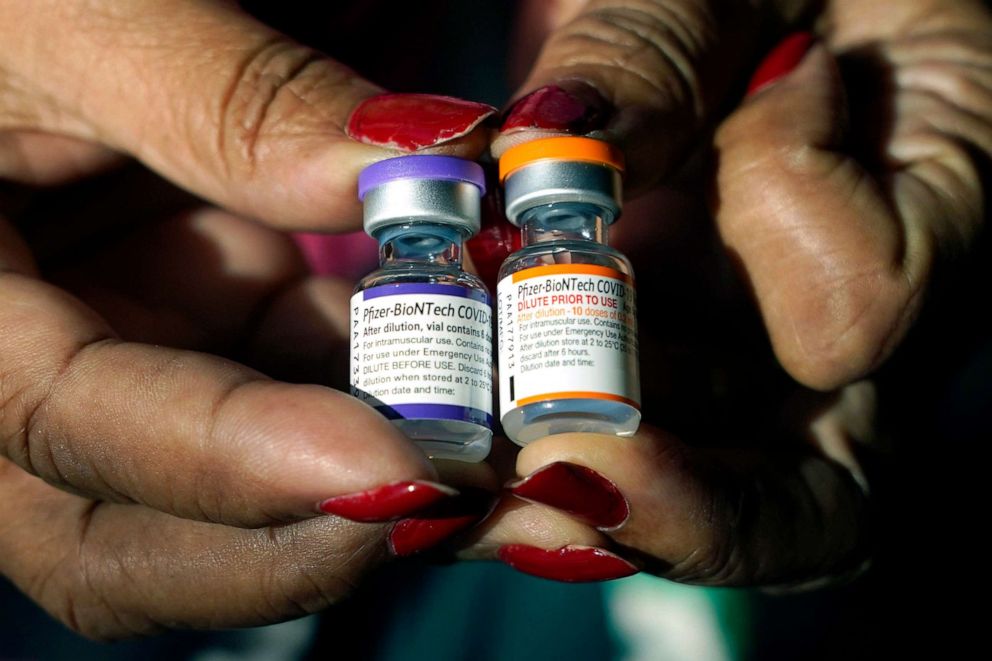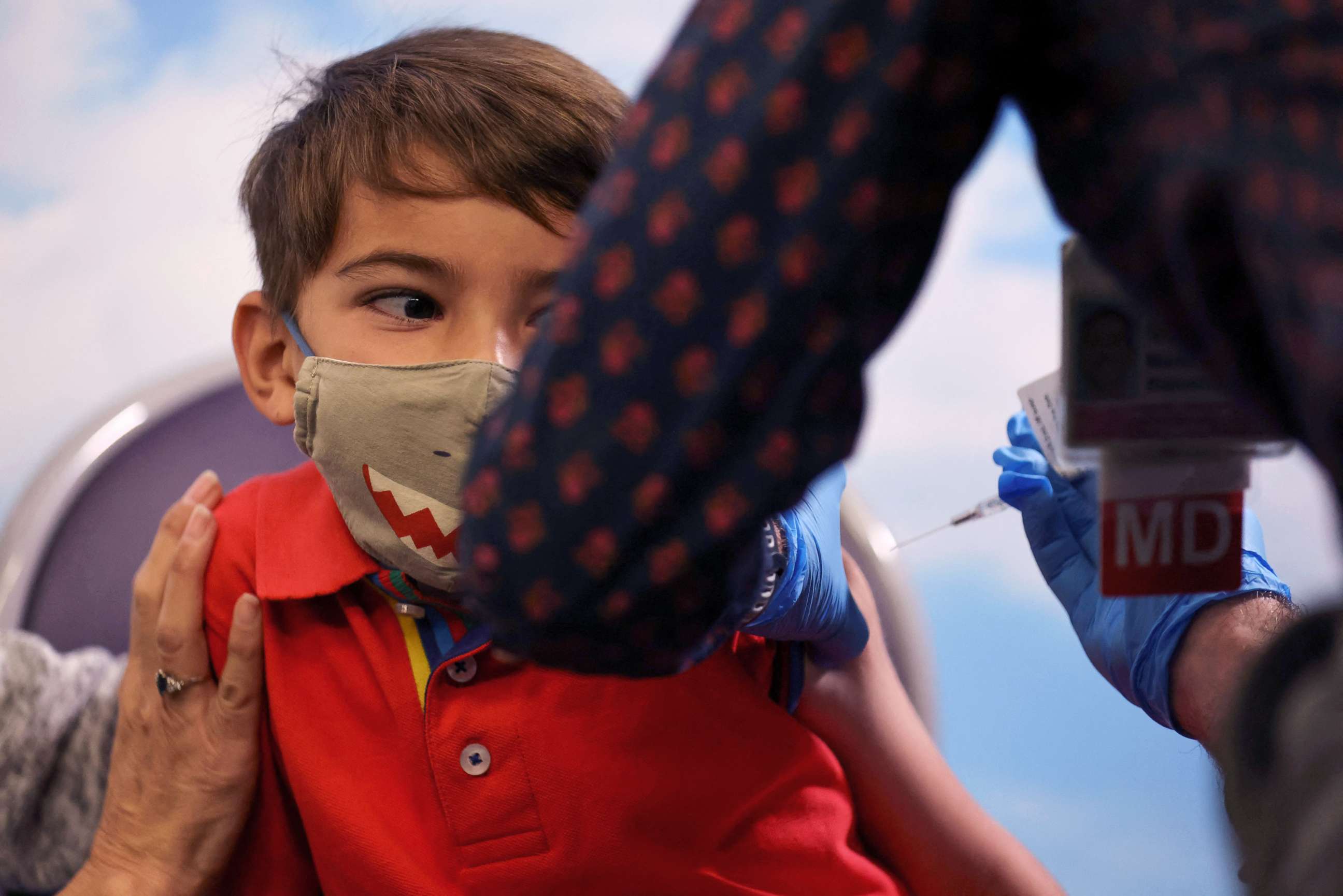FDA authorizes Pfizer's COVID-19 booster shots for children 5 to 11 years old
In April, Pfizer asked the FDA to authorize its boosters for younger children.
The U.S. Food and Drug Administration has authorized a booster dose of the Pfizer/BioNTech's COVID-19 vaccine for children ages 5 to 11 years old, at least five months after completion of a primary series, officials announced Tuesday.
"While it has largely been the case that COVID-19 tends to be less severe in children than adults, the omicron wave has seen more kids getting sick with the disease and being hospitalized, and children may also experience longer term effects, even following initially mild disease," FDA Commissioner Dr. Robert M. Califf said in a statement Tuesday.
"The FDA is authorizing the use of a single booster dose of the Pfizer-BioNTech COVID-19 Vaccine for children 5 through 11 years of age to provide continued protection against COVID-19," he added.
Pfizer asked the FDA in April to authorize its booster vaccines for younger children, after it submitted data that indicated their shot was safe and generated a strong immune response in children ages 5 to 11.

"Vaccination continues to be the most effective way to prevent COVID-19 and its severe consequences, and it is safe. If your child is eligible for the Pfizer-BioNTech COVID-19 Vaccine and has not yet received their primary series, getting them vaccinated can help protect them from the potentially severe consequences that can occur, such as hospitalization and death," Califf said.
The Centers for Disease Control and Prevention must still formally recommend the booster dose before shots can go into arms. That is likely to happen by the end of the week.
The benefits of the booster dose outweighed any known and potential risks and a booster dose can help provide continued protection against COVID-19, officials said, noting that with immunity waning, boosting is more important than ever.
"Since authorizing the vaccine for children down to 5 years of age in October 2021, emerging data suggest that vaccine effectiveness against COVID-19 wanes after the second dose of the vaccine in all authorized populations," said Dr. Peter Marks, director of the FDA's Center for Biologics Evaluation and Research, adding that the benefits of the booster dose outweighed any known and potential risks and that a booster dose can help provide continued protection against COVID-19.
In January, the FDA authorized the use of a booster dose in adolescents ages 12 through 15. Since authorization, 3.7 million adolescents ages 12 to 17 have received a booster dose.

The push to get children boosted comes despite a continued lag in vaccinating children, despite renewed increases in pediatric COVID-19 infections and hospitalizations.
To date, just 43.6% of eligible children, ages 5 to 17 years old, have been fully vaccinated, according to federal data. An even smaller portion -- less than 30% -- of children ages 5 to 11 years old have been fully vaccinated, and would thus, ultimately be eligible for a booster shot.
Overall, 25.7 million children over the age of 5 -- about half those eligible -- remain completely unvaccinated, including 18.2 million children ages 5 to 11.
Last week, more than 93,000 additional child COVID-19 cases were reported, an increase of about 76% from two weeks ago, according to a new report from the American Academy of Pediatrics and the Children's Hospital Association. This marks the fifth consecutive week of increases, and the highest weekly total since late February.
Pediatric hospital admission rates have increased by 57% in the last month, according to CDC data, and on average, about 163 virus-positive children are entering hospitals each day.
Overall numbers remain significantly lower than during other parts of the pandemic. However, many Americans who are taking at-home tests are not submitting their results, and thus, experts say daily case totals are likely significantly higher than the numbers that are officially reported.
Nearly 13.2 million children have tested positive for the virus since the onset of the pandemic, and children represent about a fifth of all reported cases on record.




